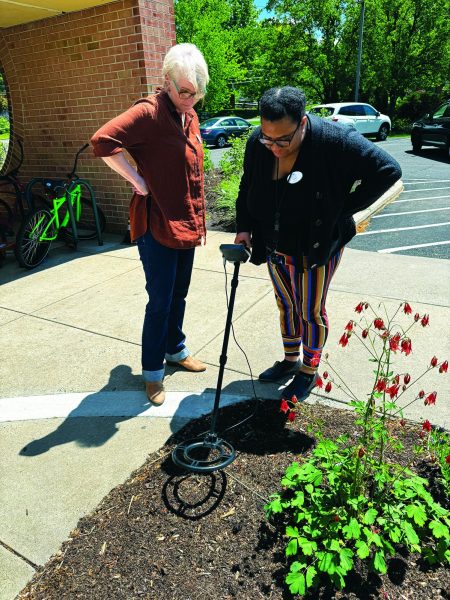Overturning Roe v. Wade is not a ‘pro-life’ decision
An Arrowhead Special News Commentary
Revealed by a Supreme Court breach in early May, the initial draft majority opinion regarding the Dobbs v. Jackson Women’s Health Organization proposes the Supreme Court’s decision to overturn Roe v. Wade. The draft was written by Associate Justice Samuel Alito. As a result of banning abortions, irreversible consequences will be placed upon the shoulders of many women who would now be unable to access safe abortions.
Circulated in a leaked Supreme Court draft, Alito wrote, “We now overrule [Roe and Casey] and return that authority to the people and their elected representatives,” giving authority to immediately an estimated half of the states, especially in the South and Midwest, the ability to illegalize abortions.
Unlike popular anti-abortion rhetoric, banning abortion will not ‘save lives,’ it will in turn increase pregnancy-related deaths, as abortion provided by a professional health care provider is safer than carrying a pregnancy to term.
According to the University of Colorado Boulder, “abortion is incredibly safe for pregnant people in the U.S., with 0.44 deaths per 100,000 procedures from 2013 to 2017,” compared to “22.1 deaths per 100,000 live births.”
Also concluded in a study published by sociologist Amanda Jean Stevenson of CU, by the end of the second year of a nationwide abortion ban in the US, “the annual number of pregnancy-related deaths would increase by 21% overall, or 140 additional deaths.”
The same study also found that the rate of pregnancy-related deaths for non-Hispanic Black women will increase to 33%, accounting for an additional 78 deaths due to systemic racism in the health care system, among other reasons.
Already in the U.S., women are subjected to ‘back alley’ abortions (abortions not provided by a professional health care provider).
The World Health Organization explains that “when people with unintended pregnancies face barriers to attaining safe, timely, affordable, geographically reachable, respectful and non-discriminatory abortion, they often resort to unsafe abortion.”
Without an exception for incest or rape, women and girls will be putting their lives at risk.
They would be forced to carry their pregnancies to term into an environment with insubstantial resources and without additional accommodations from the government.
According to the ACLU Women’s Rights Project, despite Congress passing the Pregnancy Discrimination Act in 1978, employers are still able to fire or force pregnant women out of their job, justifying this doing with “pregnancy-blind” reasons if brought to court.
This is a major issue, especially regarding low-wage workplaces dominated by women because their employers see them as replaceable, as losing one’s job also comes with losing their source of income and benefits, making it even harder to raise a child.
Even when pregnant women are able to keep their jobs, employers sometimes deny accommodations to pregnant employees, such as “more frequent breaks, schedule changes, and reassignment of hazardous tasks,” which can result in “severe consequences for their health and financial security.”
“Nobody should have to choose between a healthy pregnancy and a job,” the ACLU Women’s Rights Project writes.
For instance, in an article published by the ACLU Women’s Rights Project, former EMT Michelle Durham explains how when she was three months pregnant, her doctor recommended that she not do any heavy lifting. However, her employer said that she could either ignore her doctor’s advice or go on unpaid leave for 90 days, barely covering the remaining six months of her pregnancy.
Left with the responsibility of choosing whether to continue with her job and risk having a safe pregnancy or leaving her job and risking financially insecurity, Durham was fired.
“The resulting loss of income meant that Michelle had to move in with her grandmother, and fell deep into credit card debt. Years later, she still had bills to pay after giving birth to her son,” the ACLU writes.
This antidote overall shows the difficult choice that pregnant women may face between having a source of income to support themselves and their child, or leaving their job to ensure a safe pregnancy.
Financial obstacles can create additional barriers that may permanently prevent women from receiving necessary years of education, impacting entire countries.
According to Girl Rising, women who have easy access to education will have fewer children (meaning fewer abortions) and can boost countries’ entire economies and productivity.







